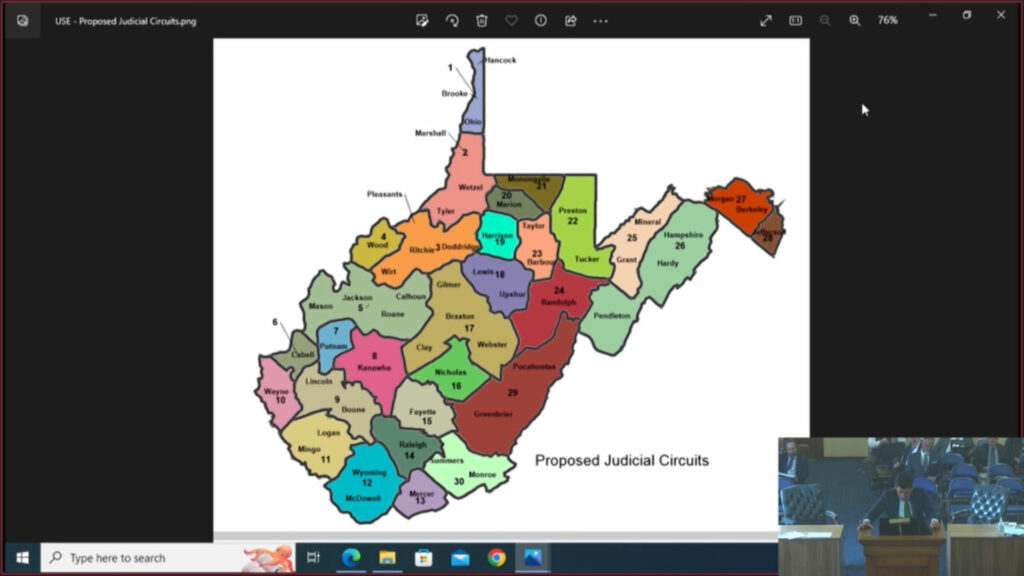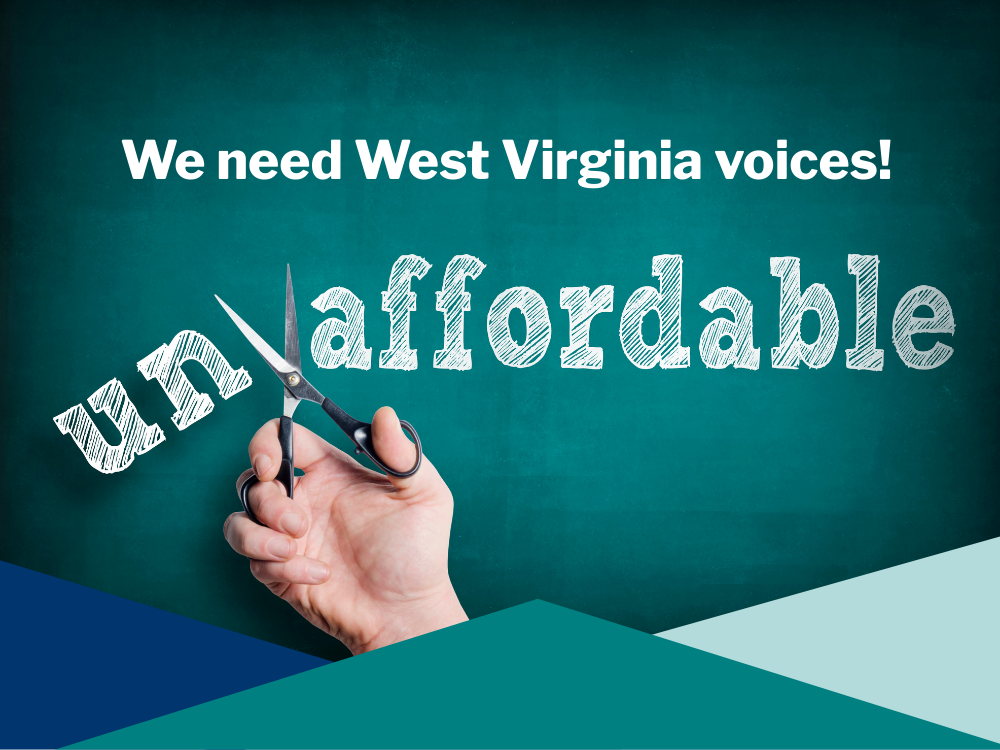- Like
- Digg
- Del
- Tumblr
- VKontakte
- Buffer
- Love This
- Odnoklassniki
- Meneame
- Blogger
- Amazon
- Yahoo Mail
- Gmail
- AOL
- Newsvine
- HackerNews
- Evernote
- MySpace
- Mail.ru
- Viadeo
- Line
- Comments
- Yummly
- SMS
- Viber
- Telegram
- Subscribe
- Skype
- Facebook Messenger
- Kakao
- LiveJournal
- Yammer
- Edgar
- Fintel
- Mix
- Instapaper
- Copy Link
The Senate Judiciary has referred three bills to its Elections and Public Integrity Subcommittee.
- SB 235 would restore voting rights to people convicted of felony offenses who are under community supervision, like probation or parole. Unfortunately, this bill is stalled. However, as the WV Center on Budget and Policy notes in their Recap of the First Half of the Legislative Session, “[R]esearch shows that it’s worth taking up. Studies have demonstrated that civic engagement is correlated with decreased risk of recidivism.”
If your Senator serves on the Judiciary Committee, call and let them know you support this bill to restore voting rights to former felons upon their release from incarceration. It’s the right thing to do!
- SB 541 would modify the certificate of announcement candidates file with the Secretary of State when they decide to run for office so that it includes a comprehensive list of candidate eligibility requirements. The bill also limits when and how vacancies on the ballot can be filled — vacancies could not be filled if a candidate withdraws “without cause” (death, disability, no longer eligible – i.e. – moved out of the district); and sets a deadline for pre-electoral challenges to candidate eligibility. As amended by the subcommittee this latter deadline coincides with the deadline for printing absentee ballots, which is 46 days before an election. The purpose of the bill is to address situations like the one that happened during the 2022 primary, where a legal challenge resulted in a State Senate candidate being removed from the ballot just days before the election. SB 541 is likely to get some more tweaking in the full committee, as there were concerns raised that it’s too restrictive and doesn’t take into account other justifiable reasons candidates may decide to withdraw.
- A bill recommended by the subcommittee that would require one-year residency within a district or county to fill vacancy in the Legislature has passed the full Senate. The purpose of SB 50 is to make the requirements for filling a vacancy consistent with the constitutional requirement that “No person shall be a senator or delegate who has not for one year preceding his election, been a resident within the district or county from which he is elected.”
The Senate has also passed two bills that would decrease transparency of political spending.
- SB 508 proposes raising the spending limits that require individuals and organizations to file disclosures with the state Ethics Commission regarding grassroots lobbying campaigns. Grassroots lobbying is when groups or individuals spend money on advertising or other communications to urge members of the public to contact the Legislature in order to influence how they will vote on legislation under consideration. Currently, any person or organization which spends more than $200 in one month or more than $500 in a three-month period on a grassroots lobbying campaign must register with the Ethics Commission within 30 days of making any expenditures. After registering they must file regular reports with the Commission through the remainder of the campaign detailing their expenditures and contributions, including the names and addresses of each person contributing $25 or more to the campaign and the aggregate amount contributed. SB 508 would raise the spending limits that require registration to $1,000 in one month or more than $5,000 in a three-month period. The names of individual donors would not need to be disclosed unless they contribute $1,000 or more.
- Similarly, SB 516 would make the dark money being spent to influence our elections darker, by raising the reporting and donor disclosure thresholds for entities that spend money on independent expenditures and electioneering communications during an election. In both instances, the threshold that would require the disclosure of donors who contribute toward these types of expenditures is being raised from $250 to $1,000. However, contributions toward these types of campaigns can be unlimited thanks to the US Supreme Court’s decision in Citizens United v. FEC. While the court upheld disclosure requirements generally because they “impose no ceiling on campaign related activities and do not prevent anyone from speaking” and “enable the electorate to make informed decisions and give proper weight to different speakers and messages.” Unfortunately, West Virginia’s current disclosure laws contain loopholes that prevent meaningful disclosure, and groups that fail to provide the names of contributors to independent expenditure campaigns and electioneering communications are rarely, if ever, penalized.
Although the redrawing of legislative and congressional districts occurred in 2021 ahead of last year’s elections, the Legislature is now doing judicial redistricting. The expectation is that we won’t see the shenanigans and gerrymandering that occurred when legislators reconfigured their own districts, but things are just getting started. SB 482, which has cleared the Senate Judiciary Committee and is now pending in Finance, modifies the number and allocation of circuit court judges, family court judges, and magistrates to be elected in the 2024 general election. Most single judge circuits are being eliminated for administrative reasons, but some busier ones with heavier case loads are being split up, so the plan increases the number of judges in certain circuits and reduces the number in others. The bill increases the number of family court judges and magistrates, eliminates statutory restrictions regarding the maximum number of magistrates, and restores the Legislature’s ability to reduce magistrates.
We’ll continue monitoring this process. In the meantime, a map of the proposed districts for the circuit courts is below, and a map of the current circuits and judges can be found here. The WV Courts website also has caseload studies and more on the various courts that are part of our state’s judicial system. The WV Legislature Today spoke with Beth Walker, Chief Justice of the WV Supreme Court of Appeals, and the chairs of the Senate and House Judiciary Committees to learn more. Watch or listen here (the segment on judicial redistricting begins just past the 9:30 mark).

The House Committee on Political Subdivisions has advanced three bills. All three bills are now pending in the House Judiciary Committee.
- HB 2244 – would give a minority of city residents the ability to put local ordinances on the ballot for repeals, including the 18 non-discrimination ordinances that have been adopted by municipalities in the state in the absence of statewide protections for members of West Virginia’s LGBTQ+ community.
- HB 2038 – Requires the Secretary of State to refer potential election fraud cases to the Attorney General for prosecution, if county prosecutors decline to pursue the case. Counsel for the Secretary of State’s office say they have referred 64 cases to local prosecutors since 2017 resulting in nine convictions, seven of which were election related. Prosecutors declined the vast majority of cases due to limited county resources, prioritizing other crimes, lack of criminal intent, or the age of the accused. Although no reason was given for declining some cases, it’s noteworthy that of all the election related cases, none were taken if the person alleged to have committed the violation was a currently elected official. It’s important to remember, that research reveals that fraud is very rare, voter impersonation is virtually nonexistent, and many instances of alleged fraud are, in fact, mistakes by voters or administrators. Claims of widespread voter fraud in recent elections have been repeatedly and definitively debunked. It is important to protect the integrity of our elections. But we must be careful find solutions to real problems rather than making laws that will be used to scapegoat and make an example of people who were just trying to be responsible citizens and fulfill their civic duty but misunderstood or were unfamiliar eligibility requirements, as a number of high profile voter fraud prosecutions in other states have done.
- HB 2782 – Would require cities to hold their municipal elections on the same days as statewide primary or general elections. As reported in the Dominion Post, “Last year, the Legislature passed a bill – HB 4353, the Voter Turnout Act – that allowed cities to align their elections with those dates if they wished to and they worked out the details and costs with the county clerk’s office. This bill, HB 2782, makes it mandatory.”


